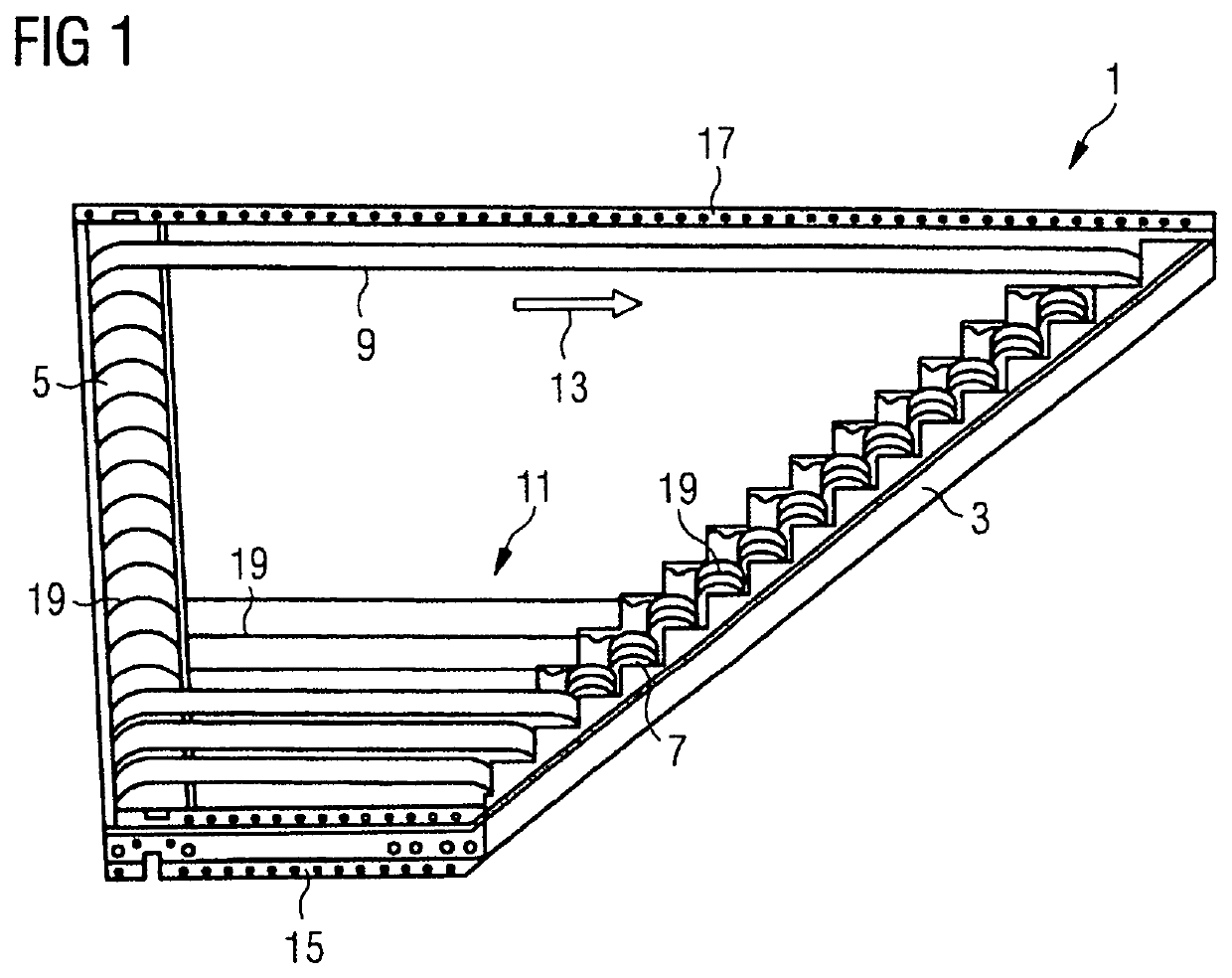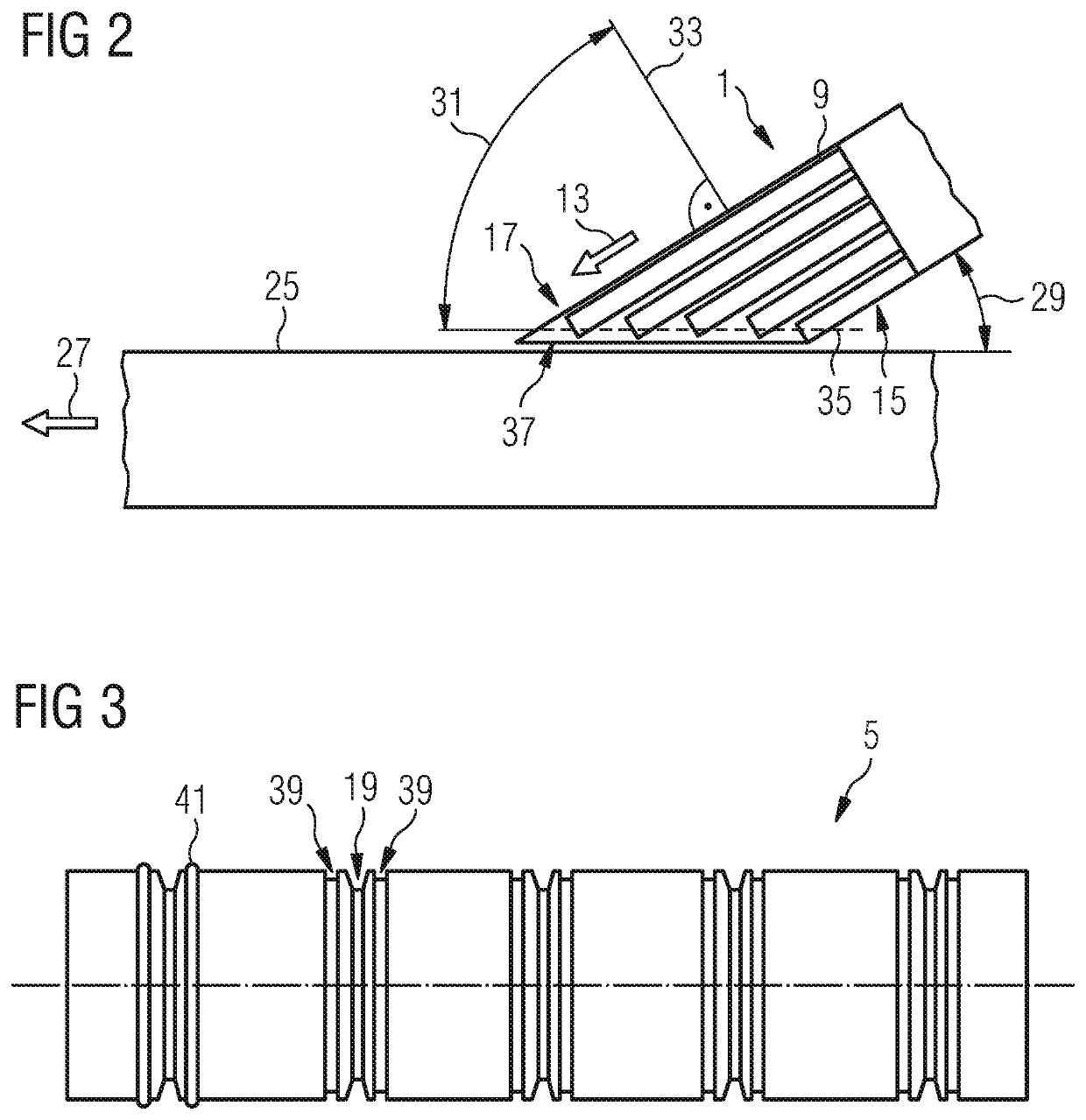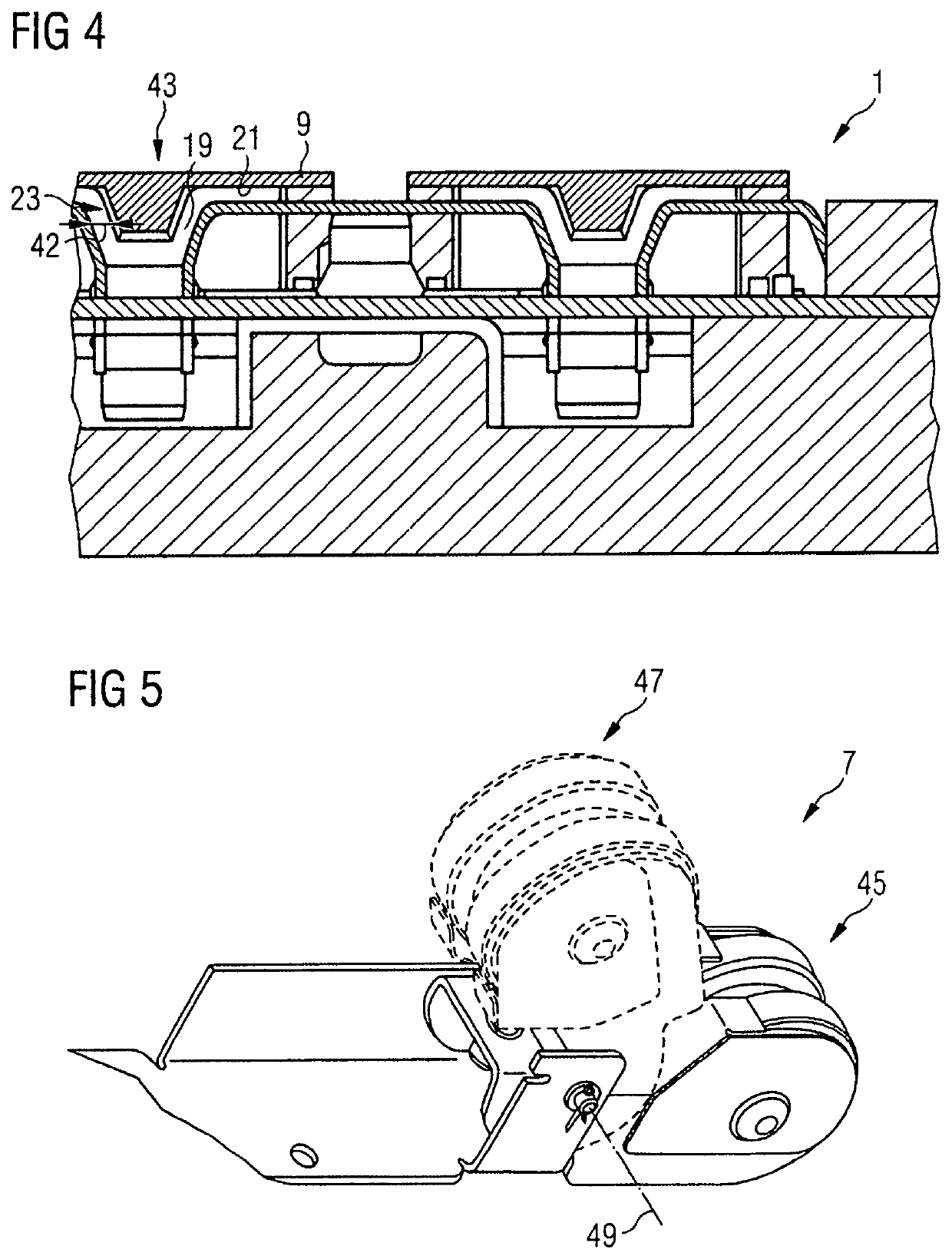Supply device and method for producing a supply device
a supply device and supply technology, applied in the direction of conveyor belts, rollers, transportation and packaging, etc., can solve the problems of the known supply device may have insufficient friction between the conveyor belt and the drive pulley, so as to reduce the risk of transportation errors, reduce the effect of friction loss, and increase the friction
- Summary
- Abstract
- Description
- Claims
- Application Information
AI Technical Summary
Benefits of technology
Problems solved by technology
Method used
Image
Examples
Embodiment Construction
[0055]FIG. 1 shows a supply device 1 according to a first exemplary embodiment with a drive pulley 5 arranged in a frame 3 and multiple end pulleys 7, sixteen in this case, each of which is associated with a conveyor belt 9—thus with sixteen conveyor belts 9 in this exemplary embodiment. Between the drive pulley 5 and the end pulleys 7 a bed 11 is arranged. The drive pulley 5, the end pulleys 7 and the bed 11 are mounted on the frame 3.
[0056]The conveyor belts 9 are arranged approximately along a feed direction 13 shown by means of an arrow and approximately parallel adjacent to each other. The feed direction 13 points away from the drive pulley 5 towards the end pulleys 7. In this illustration, some of the conveyor belts 9 have been left out so that the construction of the supply device 1 can be seen more clearly; the bed 11 is also shown incompletely. A belt length of the respective conveyor belts 9 increases in steps from a first lateral end section 15 of the supply device 1 to a...
PUM
 Login to View More
Login to View More Abstract
Description
Claims
Application Information
 Login to View More
Login to View More - R&D
- Intellectual Property
- Life Sciences
- Materials
- Tech Scout
- Unparalleled Data Quality
- Higher Quality Content
- 60% Fewer Hallucinations
Browse by: Latest US Patents, China's latest patents, Technical Efficacy Thesaurus, Application Domain, Technology Topic, Popular Technical Reports.
© 2025 PatSnap. All rights reserved.Legal|Privacy policy|Modern Slavery Act Transparency Statement|Sitemap|About US| Contact US: help@patsnap.com



